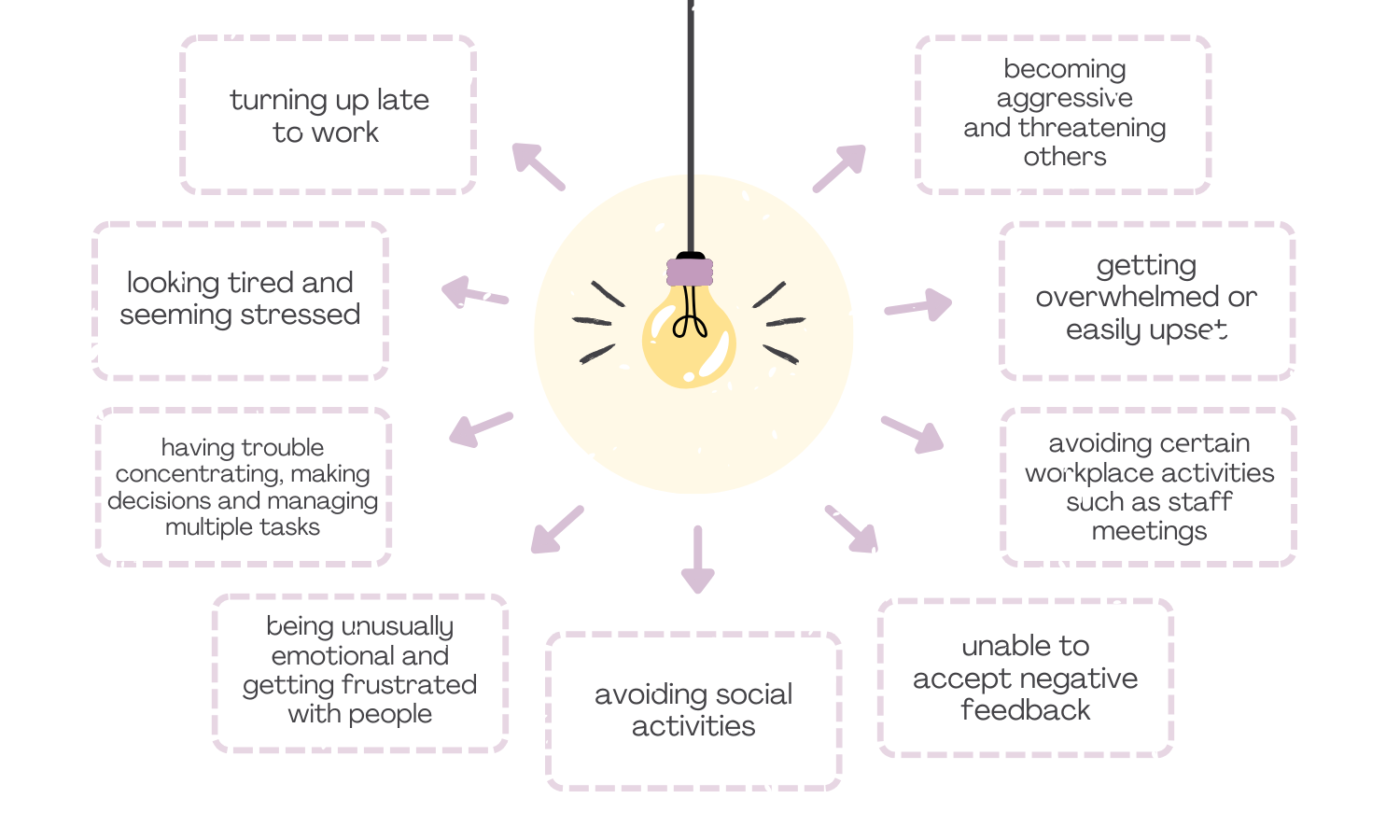Building a mentally healthy workplace: How to support your teammates
Ever thought about the impact of mental health in the office? Turns out, those little gestures of support can make a world of difference. After all, we're spending a hefty chunk of our lives at work, right? So, why not make it a place where mental health matters? Whether it's a kind word or an empathetic ear, being there for our colleagues can create a workplace that's not just productive, but mentally healthy too.
When these tiny acts become a regular thing at work, it shows everyone that mental health matters here. Plus, it gets folks more involved and motivated to pitch in, making our workplace a happier and healthier spot to be in.
According to Eliza Oakley, Mindful Employer Program Manager at SANE Australia, the workplace is a unique space where we interact with others regularly, making it the perfect environment to notice any signs of mental health issues in our colleagues.
Signs to look out for
Spotting signs of mental health issues doesn't mean we're looking for major red flags. Sometimes, it's about picking up on subtle changes and knowing when something seems off, even in the early stages.
It's all about noticing any shifts in behaviour as explained by Oakley. For instance, maybe they're not as chatty in meetings as usual, or they’ve withdrawn from social interaction with the team during meetings. It could even be as simple as noticing more mistakes in their work.
These changes might not mean your colleague is spiralling into a mental health crisis, but they're signals that something's up. Whether you know about their struggles or not, your support could make all the difference during a tough period.
Keep an eye out for signs that a work colleague or employee needs your support. They might be:
Source: betterhealth.vic.gov.au
Source: SANE | Workplace mental health
How you can support your teammates
Here are six simple ways we can support our colleagues' mental well-being, according to Oakley.
1. Show you care
If you're unsure about broaching the topic of mental health, think of it like you would with physical health. Just as you'd ask someone with a limp if they're alright, it's important to check in when you notice any changes. It doesn't automatically mean there's a mental health issue, but asking, 'are you okay?' can make a big difference.
Source: 2023 Indicators of a Thriving Workplace report
2. Look beyond performance
Mental health issues can often manifest as a dip in performance. In the past, this might have led to performance management discussions, but now it's about giving people space to share what's really going on. We need to allow individuals the opportunity to express themselves and share their experiences, Oakley advises.
3. Respect boundaries
While offering support, remember to respect your colleague's privacy. We can care without needing all the details, as Oakley suggests. Show empathy while honouring their right to disclose as much or as little as they're comfortable with.
4. Educate yourself about mental health
Combatting mental health stigma starts with education. By learning about mental health, we can create a culture where open discussions are encouraged. “Let’s educate ourselves enough that we let go of the stigma around potential mental health issues,” says Oakley.
5. Stay open-minded
Let’s avoid making assumptions or limiting our colleagues' capabilities based on preconceived notions. With a significant portion of Australians facing mental health challenges, it's important to recognise each person's unique strengths. Let's move past stereotypes and acknowledge everyone's potential.
6. Know your boundaries
While offering support, it's essential to prioritise your own well-being. Listen attentively and be clear about your own limits. If ongoing support is needed, encourage them to speak with their manager or seek professional help.
Where to get help
Your doctor
Lifeline, call 13 11 14
SANE Australia, call 1800 18 SANE (7623)
beyondblue, call 1300 22 4636









